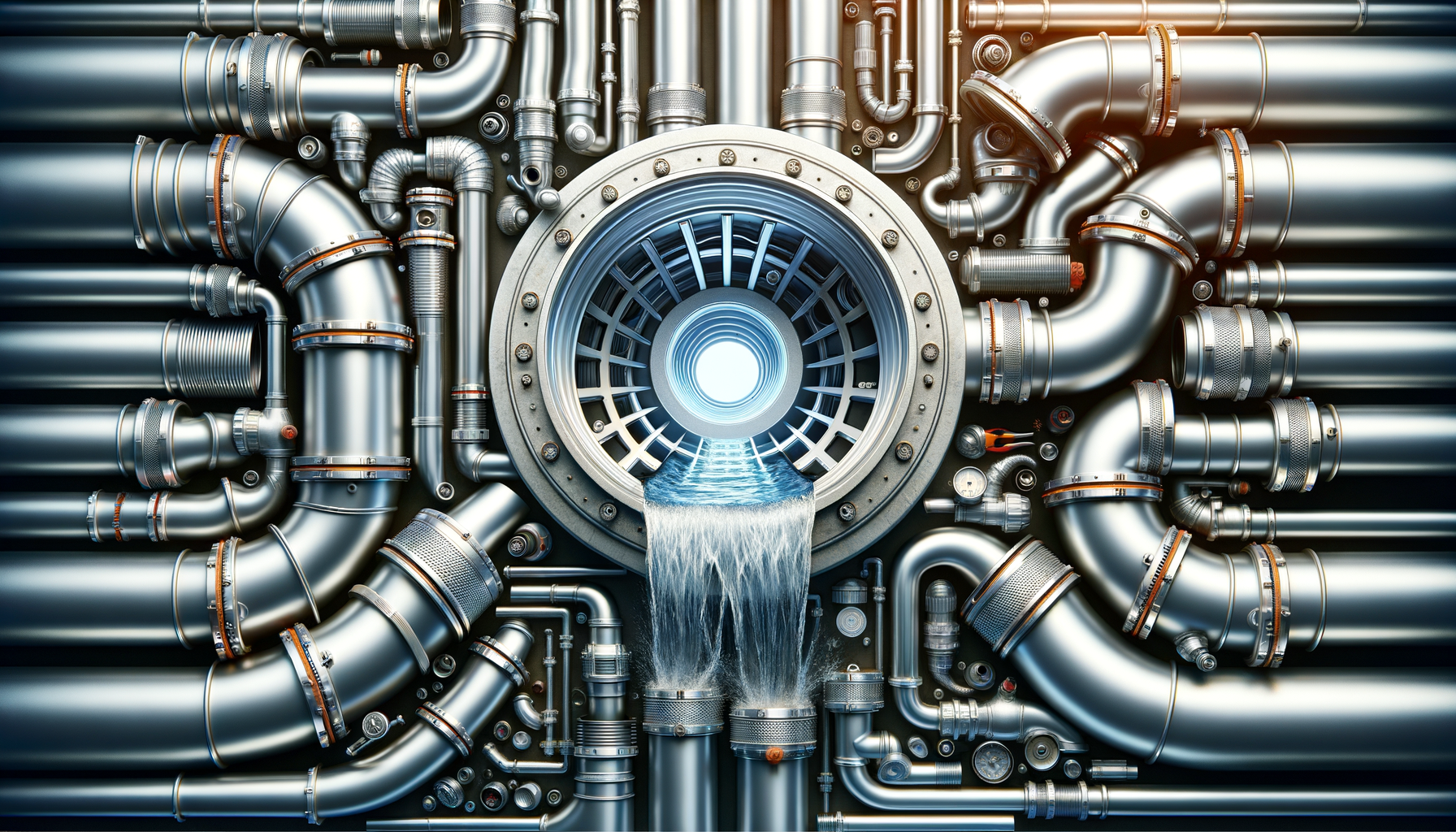Keeping the Flow: A Comprehensive Guide to Drain & Pipe Cleaning
Maintaining clean drains and pipes is crucial for a healthy and efficient home environment.

Understanding the Importance of Drain and Pipe Cleaning
The significance of regular drain and pipe cleaning cannot be overstated. Clogged drains can lead to a host of problems, including unpleasant odors, slow drainage, and even water damage. Regular maintenance helps prevent these issues, ensuring that water flows smoothly through your plumbing system. It’s not just about convenience; it’s about maintaining the integrity of your home.
Consider the environmental impact as well. Clogged drains can lead to leaks and water wastage, which is not only costly but also harmful to the environment. By keeping your drains clean, you’re contributing to a more sustainable household.
Moreover, clean drains reduce the risk of pest infestations. Stagnant water and food debris can attract pests such as cockroaches and rats, posing health risks to your family. Regular cleaning helps mitigate these risks, providing a safer living environment.
Common Causes of Drain Blockages
Understanding what causes blockages is the first step in preventing them. One of the most common culprits is hair, which tends to accumulate and form clumps that obstruct water flow. In kitchens, grease and food particles are notorious for causing blockages. As grease cools, it solidifies and traps other debris, leading to a stubborn clog.
Foreign objects such as toys, sanitary products, and wipes are also frequent offenders. These items do not break down easily and can cause significant blockages. Additionally, mineral buildup from hard water can restrict pipe diameter, slowing drainage over time.
- Hair: Common in bathroom drains.
- Grease: A frequent issue in kitchen sinks.
- Foreign objects: Toys, wipes, and sanitary products.
- Mineral buildup: Especially in areas with hard water.
Effective Methods for Cleaning Drains and Pipes
There are several methods to keep your drains and pipes clean. One popular approach is the use of a plunger, which can dislodge minor blockages with ease. For more stubborn clogs, a drain snake or auger might be necessary. These tools can reach deep into pipes to remove obstructions.
For those who prefer chemical solutions, enzymatic cleaners are a safer alternative to harsh chemicals. These products use natural enzymes to break down organic matter without damaging your pipes. However, it’s important to use these products sparingly to avoid harming the environment.
Regular maintenance is key. Pouring boiling water down the drain once a week can help dissolve grease and clear minor clogs. Additionally, installing drain guards can prevent hair and large debris from entering your pipes in the first place.
When to Call a Professional
While many drain issues can be resolved with DIY methods, there are times when professional help is necessary. If water is backing up in multiple drains, it could indicate a severe blockage in your main sewer line. This requires specialized equipment and expertise to address.
Persistent odors and frequent clogs are also signs that professional intervention is needed. A plumber can perform a thorough inspection and identify underlying issues that may not be visible to the untrained eye.
Moreover, if you notice any signs of water damage, such as stains on walls or ceilings, it’s crucial to seek professional assistance immediately. Ignoring these signs can lead to more extensive and costly repairs down the line.
Conclusion: Maintaining a Healthy Plumbing System
In conclusion, regular drain and pipe cleaning is essential for maintaining a healthy plumbing system. By understanding the causes of blockages and employing effective cleaning methods, homeowners can prevent many common issues. However, knowing when to call a professional is equally important to ensure that your plumbing system remains in optimal condition.
A proactive approach to drain maintenance not only enhances the efficiency of your plumbing but also contributes to a cleaner and safer home environment. By incorporating these practices into your routine, you can enjoy the peace of mind that comes with a well-maintained home.